Evgeny Morozov Quotes & Sayings (Page 7)
Evgeny Morozov quotes and sayings page 7 (writer). Here's quote # 61 through 70 out of the 108 we have.
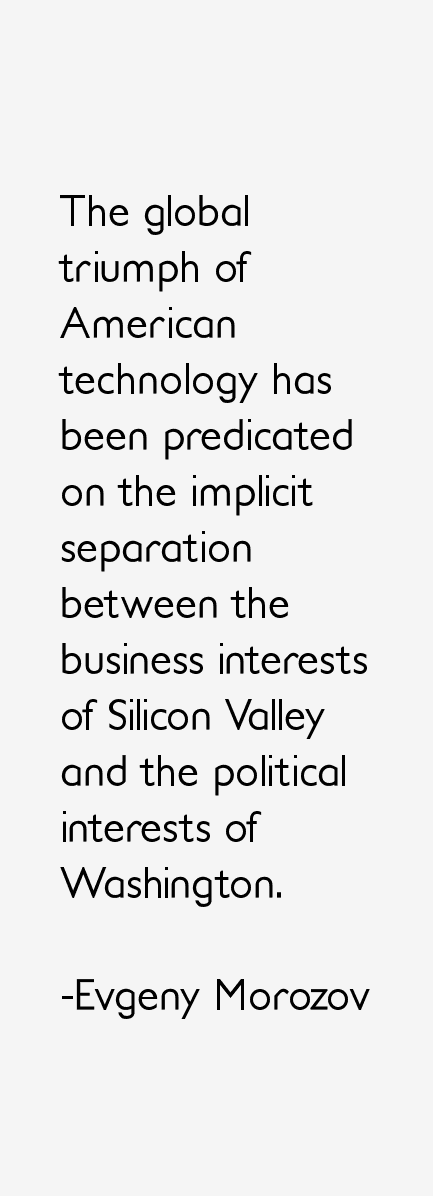
“The global triumph of American technology has been predicated on the implicit separation between the business interests of Silicon Valley and the political interests of Washington.”
“The message I'm trying to send is that technology is political, and that many decisions that look like decisions about technology actually are not at all about technology - they are about politics, and they need to be scrutinized as closely as we would scrutinize decisions about politics.”
“When we can commit a crime, we can also trigger debate. Cases go to courts. Media start covering the cases. But once you build smart environments where, if you meet a certain probabilistic profile, you won't even be allowed to board a bus, let alone commit a crime, we're perpetuating existing laws so they face no challenges or revision.”
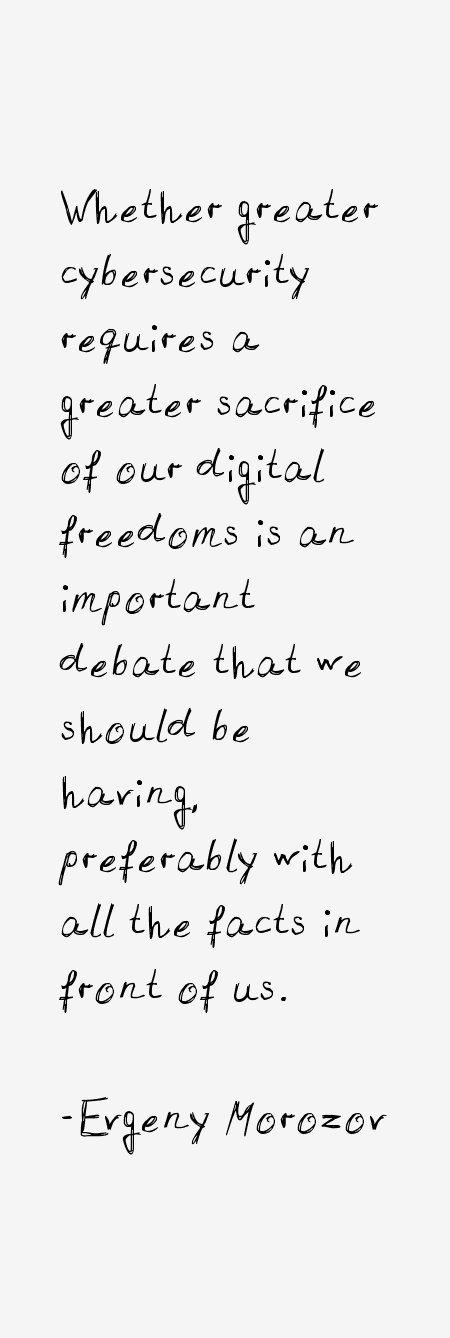
“Whether greater cybersecurity requires a greater sacrifice of our digital freedoms is an important debate that we should be having, preferably with all the facts in front of us.”
“Why does crime happen? Well, you might say that it's because youths don't have jobs. Or you might say that's because the doors of our buildings are not fortified enough. Given some limited funds to spend, you can either create yet another national employment program or you can equip houses with even better cameras, sensors, and locks.”
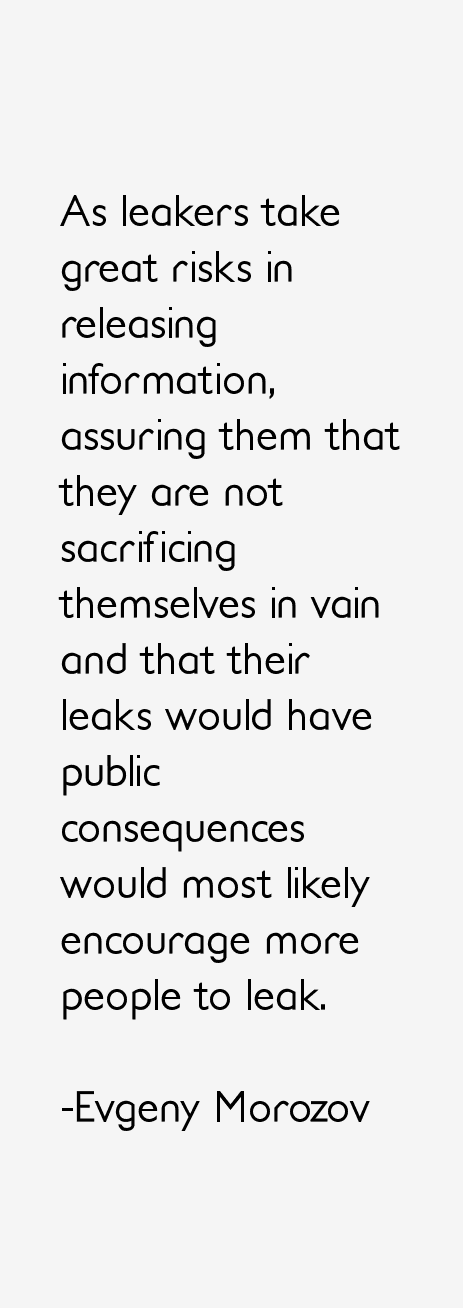
“As leakers take great risks in releasing information, assuring them that they are not sacrificing themselves in vain and that their leaks would have public consequences would most likely encourage more people to leak.”
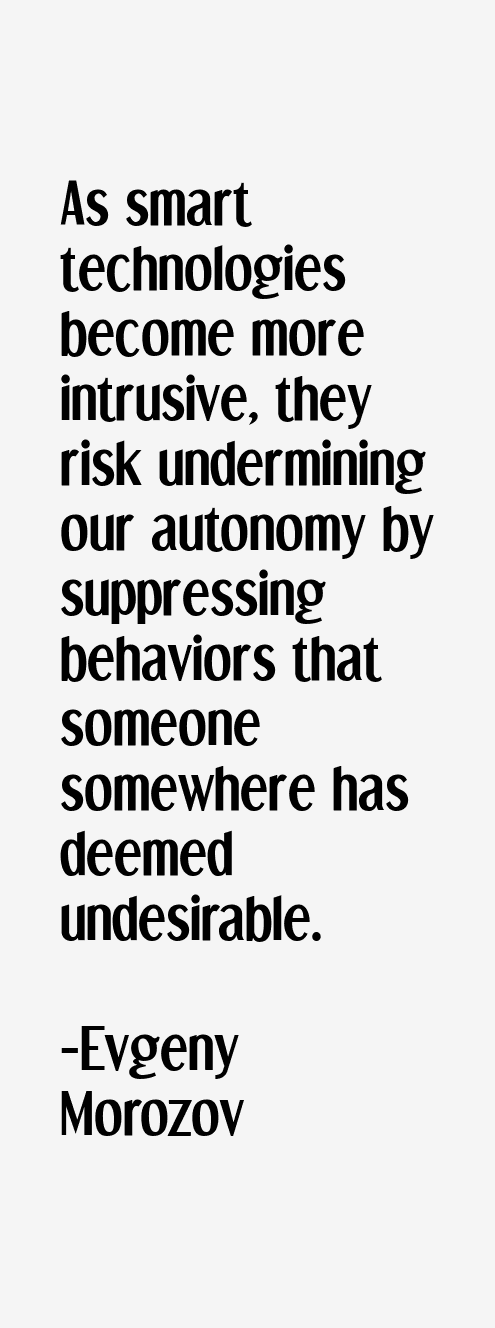
“As smart technologies become more intrusive, they risk undermining our autonomy by suppressing behaviors that someone somewhere has deemed undesirable.”

“If you trace the history of mankind, our evolution has been mediated by technology, and without technology it's not really obvious where we would be. So I think we have always been cyborgs in this sense.”
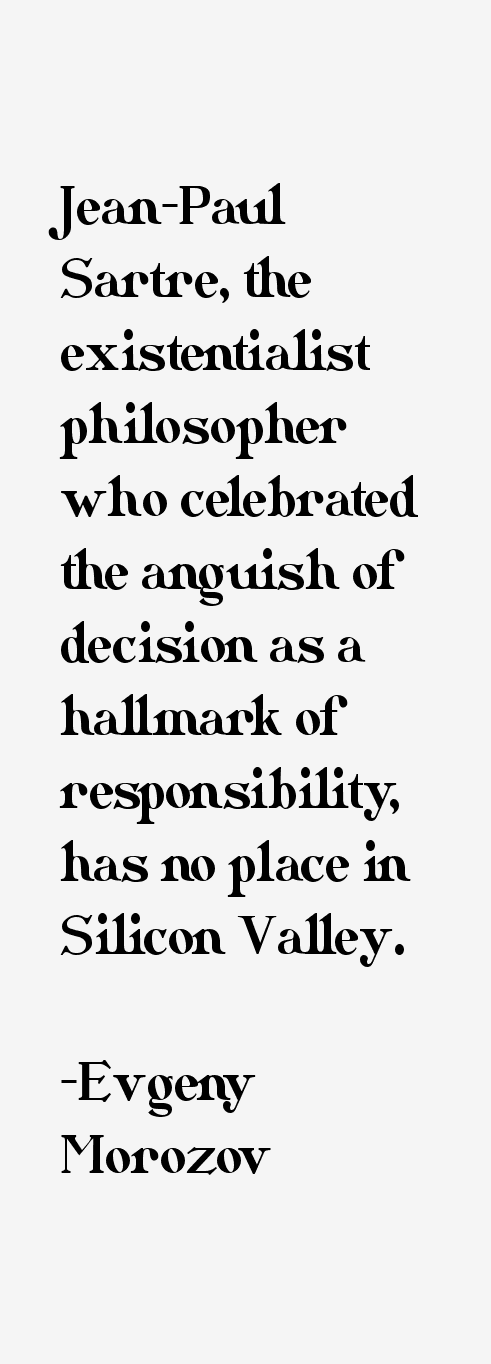
“Jean-Paul Sartre, the existentialist philosopher who celebrated the anguish of decision as a hallmark of responsibility, has no place in Silicon Valley.”
“Sleephackers go to bed with sensors on their wrists and foreheads and maintain detailed electronic sleep diaries, which they often share online. To shift between sleep phases, sleephackers experiment with various diets, room and body temperatures, and kinds of pre-sleep physical exercise.”
Evgeny Morozov Quotes Rating
No Ratings Yet
Leave A Comment
























